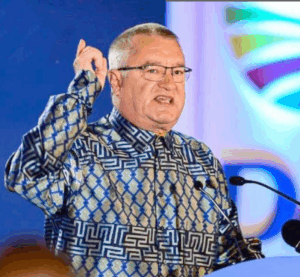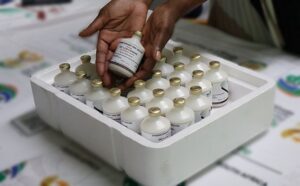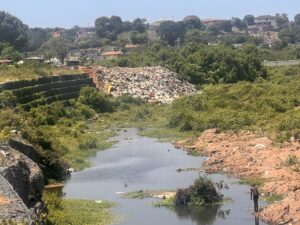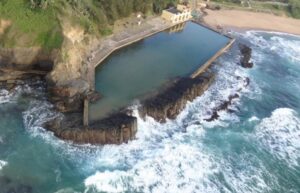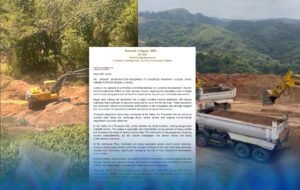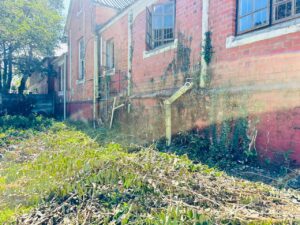KZN’s water crisis has spiralled out of control with palpable anger and resentment among residents regarding the quality of water and frequent water outages across our province.
Several years ago, former CoGTA MEC – and now Deputy Minister of Public Works – Sihle Zikalala launched an ambitious KZN Water Master Plan which promised to dedicate R150 billion to resolve the province’s water woes. The primary problem with these plans is that they are rich on ideas but poor on implementation.
Not one cent of the R150 billion has seen the light of day while the entire master plan is just a concept. Or in the words of President-elect Donald Trump when concocting a word salad in a recent debate, it is ‘a concept of a plan’.
With little or no help coming from national or provincial government, the funding of water and sanitation infrastructure and the maintenance thereof has been left squarely in the hands of municipalities. But KZN’s municipalities have a massive problem – they pay billions of Rands for water and then promptly lose most of it.
eThekwini is a prime example. The stated water loss figure for the municipality is 57.8% of the water abstracted and paid for from the Mngeni Water System, way above the national norm of between 15 and 30%. This lost water is politely called ‘non-revenue’ water. But let’s call a spade a spade – it is simply lost water and lost revenue.
The question is: How much water is eThekwini losing?
The bulk of water supply to the municipality comes from the Mngeni-uThukela Water catchment system. As per figures received today, the average purchase of water from Mngeni amounts to approximately 1.1 million kilolitres per day. Apply the stated water loss figure of 57.8% and we are losing 635 800 kilolitres per day.
Where do we lose this water?
Frankly, this is a bit of guess work. The system is so antiquated that it rests on the simple assumption that you subtract water revenue coming in from what you paid for it and there is your loss.
The primary cause for this loss is listed as leaking pipes. If infrastructure is to be kept in good condition, at least 2% of its value needs to be replaced each year. In eThekwini’s case, this means that about R2 billion per year should be spent and it would take the municipality 50 years to do this. The reality is that the eThekwini has only allocated R500 million annually over the past few years to this problem.
If eThekwini is spending R500 million where it should be spending R2 billion, it has lost before its even begun.
A secondary cause for non-revenue water is that consumed by indigent households. However, no official can tell any public representative how much water is consumed by indigent households. Added to this are the standpipes that are not maintained or metered.
The final cause is water theft. Residents, desperate to survive, have embarked on the now famous ‘Faka Amanzi Operation’, or ‘Operation Self-Connection’. Communities are literally forced to connect to the water systems themselves.
The end result of this is that eThekwini have been told by the Department of Water and Sanitation that the abstraction from the Mngeni system must be reduced from 1 406 Ml/d to 1 287.7Ml/d – a reduction of 118 Ml/d.
The financial implications of a water loss rate of 57.8% are staggering.
This loss, which is way above the international bench-mark of 15 – 30%, not only represents a massive loss of a scarce resource, it also means a gargantuan loss of revenue generation. To bring this fact into stark relief, the Auditor General (AG) reported to Parliament in August 2024 that South Africa lost nearly 1.74 billion kilolitres (1.7 trillion litres) of water in 2022/23, with lack of infrastructure maintenance the leading cause. The AG further pointed out that the sale of this lost water could have realised revenue for municipalities worth nearly R30 billion.
eThekwini, as I pointed out earlier, is losing 635 800 kilolitres daily. The city pays R11.81 per kilolitre and sells it at an average of R40 to R60 per kilolitre – a healthy margin of around an average of R40 per kilolitre. So, if eThekwini is losing is losing 635 800 kilolitres per day, it is losing a staggering R25 432 000 in profit margin each day. Every day. That’s about R750 million per month. Of course, free water is deducted from this figure but the picture is depressingly clear.
This while the Department wants eThekwini to reduce consumption by 118 megalitres a day. Surely it is obvious that tightening up ageing infrastructure, clamping down on water theft and getting a handle on how much free water is dispensed will reduce loss rates considerably and remove the need for reductions or restrictions. And the money needed for all these operations will come from the regained revenue – money that is being lost every day right now.
The DA welcomes the move by eThekwini Municipality to call in a group of retired engineers as it embarks on a massive project to help reduce pressure on the city’s water supply. We also need to embrace innovative technologies used in water scarce environments such as Dubai that use water leakage simulators and smart ball technology to detect leaks.
In addition, Dubai has introduced initiatives that allow consumers to monitor, manage, and control their consumption proactively and digitally. The high water usage alert service has, since inception, detected 1,8 million leakages in water connections after the meter (this means the problem is on the customer side) and 13 397 cases of increased load. The service sends instant notifications to customers if it detects any unusual increase in consumption so that they can quickly repair internal connections, or any leaks in water connections. This, with the help of a specialised technician and perform the necessary maintenance work to reduce waste.
KZN’s water crisis can be solved. The Government of Provincial Unity (GPU) must reject the neglect and decay and move forward with a determination to learn from the experts and commit ourselves to innovation and sensible spending. The fight for water rights for all can be achieved.

